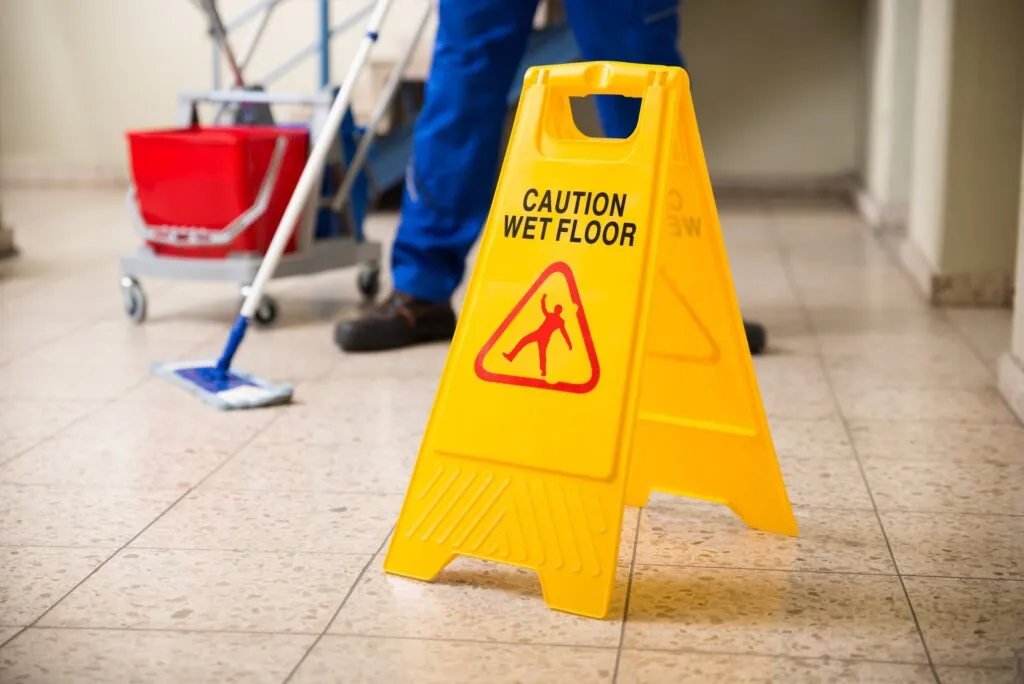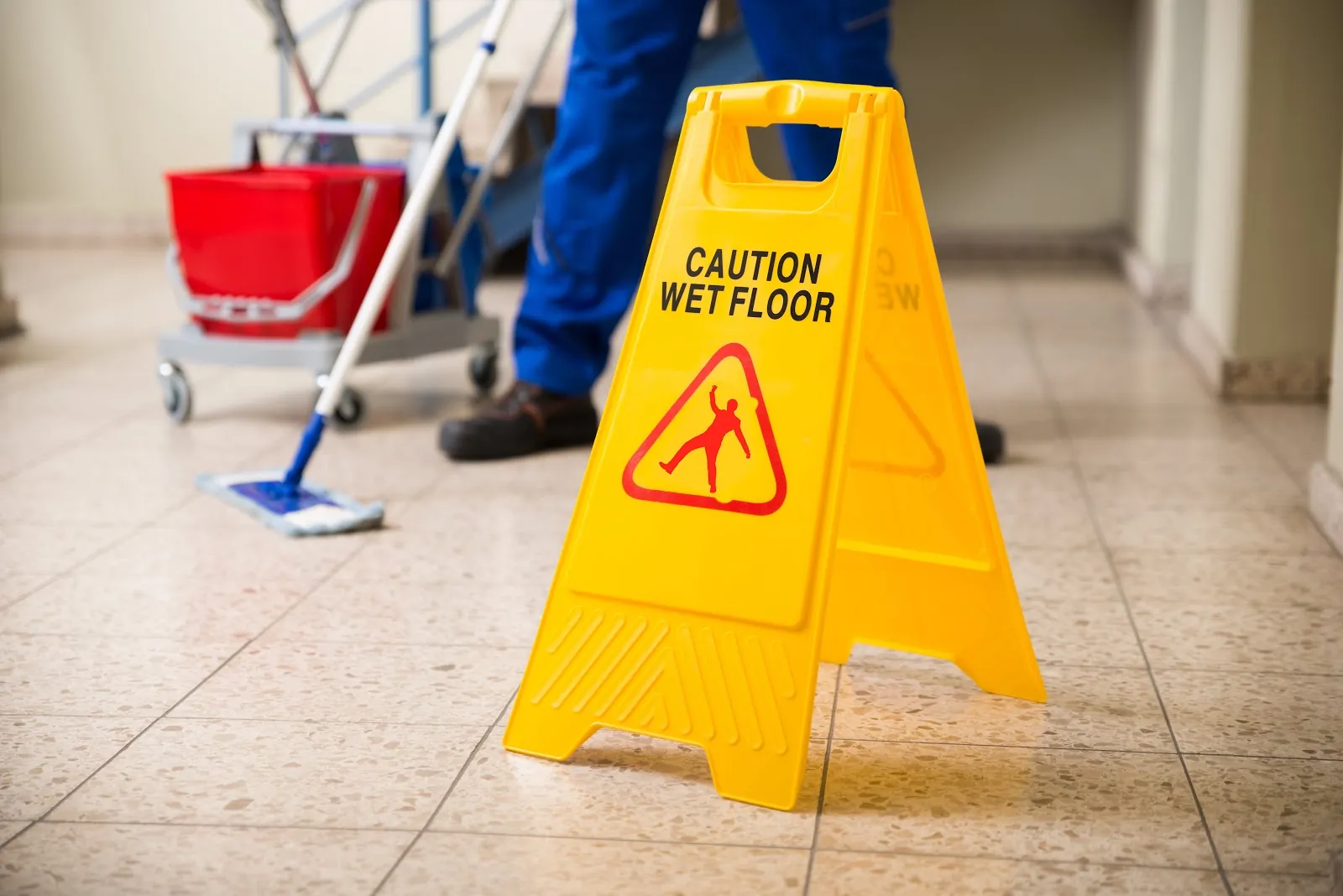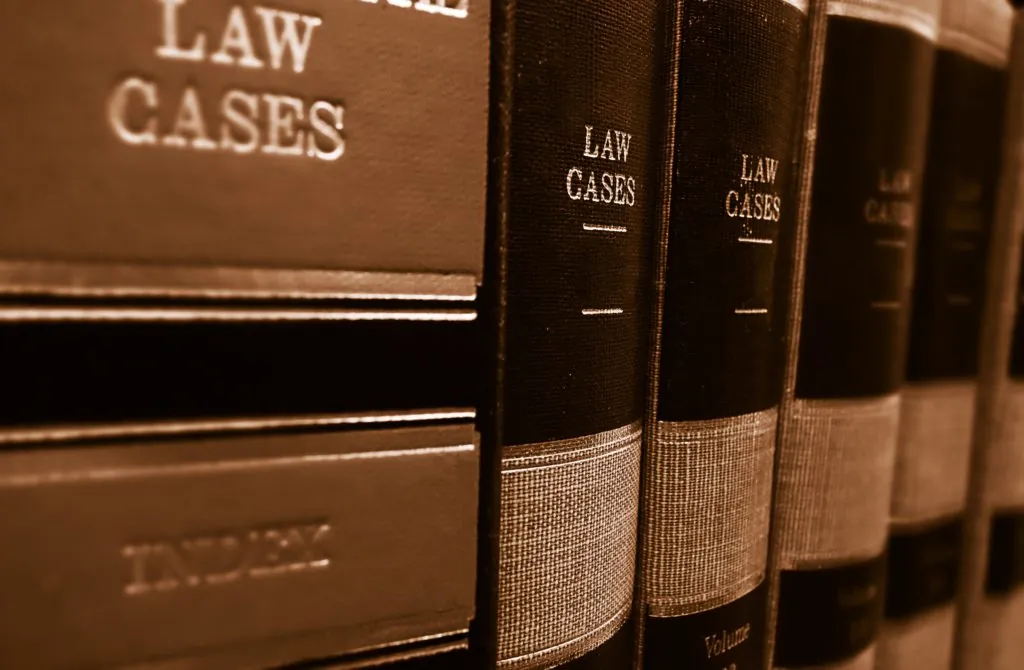Actual and Constructive Knowledge in Florida Slip and Fall Cases

If you have a slip and fall injury in Florida, it’s important for you to understand the difference between actual and constructive knowledge and how it applies in a personal injury case.
Below, we’re going to explain what each term means, cover the elements you need to prove to win a slip and fall case.
Understanding Actual vs. Constructive Knowledge
To successfully gain compensation in a slip and fall accident case, you must be able to prove that the defendant had actual or constructive knowledge of the problem that caused your injury. If you can prove that the defendant had knowledge and did nothing to correct the problem, you may be able to win your case.
Constructive knowledge is when the hazard either occurred regularly and was foreseeable and preventable, or existed for long enough that the entity should have reasonably known about it. Constructive knowledge can be proven through circumstantial evidence.
One example of constructive knowledge is video evidence of a damaged floor tile over a long period of time, with no efforts being made to replace it.
Actual knowledge is when an entity knows about the specific hazard at the time and place of the slip and fall incident. It can be harder to prove than constructive knowledge because it is based on testimony.
An example of actual knowledge is if eyewitnesses can testify that a business owner looked at a spill on a floor but failed to clean it up in a reasonable amount of time, which resulted in a slip and fall injury.
A skilled Florida personal injury attorney will be able to tell you whether enough actual or constructive knowledge exists to form a successful slip and fall case.
How Actual and Constructive Knowledge Inform the Elements of a Florida Slip and Fall Case
To win a personal injury lawsuit such as a slip and fall case, you need to prove that all four of the below elements exist, which include actual or constructive knowledge. Here are the four elements that need to be proven.
Duty
The defendant owed you a reasonable standard of care. For example, as a customer in a restaurant, the restaurant owner has a duty to provide a safe dining atmosphere to you.
Breach of Duty
The defendant failed to meet the reasonable standard of care through some form of negligence. Examples include failure to clean up spills on a floor, failure to repair worn carpeting, or failure to remove clutter from a hallway. This is where actual or constructive knowledge comes into play in a slip and fall claim.
Causation
The breach of duty caused injury to you. For example, the restaurant’s failure to clean up a spill or mark off the area directly caused you to fracture a bone when you slipped and fell on the wet floor.
Damages
The injury you incurred resulted in financial costs. You may have medical bills or lost income due to time off from work. A slip and fall lawsuit can get you compensation for these costs, along with compensation for pain and suffering you may have experienced.
Legal Assistance for Slip and Fall Cases in Florida
If you have been injured in a slip and fall accident, Florida law allows you to file a claim based on Florida injury lawyer can prove that negligence was involved, you may able to hold someone else liable for your costs.
Contact an experienced Pembroke Pines FL Accident Attorney today for more information. Call today for your free case review.
About the Author:
Since 1994, seasoned litigation and trial lawyer Anthony B. White has helped thousands of accident victims seek damages due to injuries sustained as a result of another party’s negligence. Included in America’s Registry of Outstanding Professionals and selected to the 2012, 2013, and 2014 editions of Florida Super Lawyers, Mr. White specializes in car accidents, insurance disputes, wrongful death, product liability, and medical malpractice cases. He is a longstanding member of the Florida Justice Association and the American Association for Justice and currently sits on the Board of Directors of the Broward County Justice Association.

